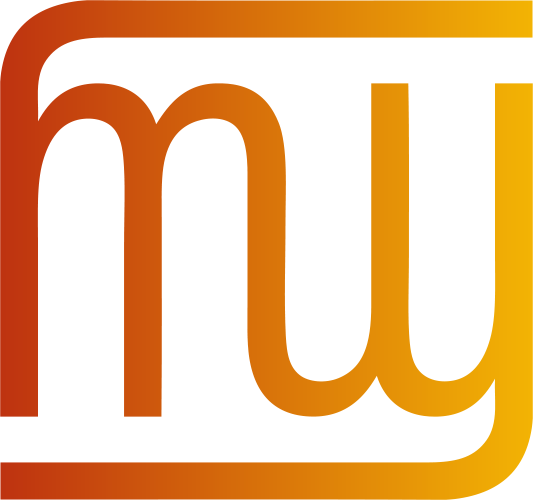 The W3C Internationalization (I18n) Activity works with W3C working groups and liaises with other organizations to ensure Web technologies work for everyone, regardless of their language, script, or culture.
The W3C Internationalization (I18n) Activity works with W3C working groups and liaises with other organizations to ensure Web technologies work for everyone, regardless of their language, script, or culture.
From this page you can find articles and other resources about Web internationalization, and information about the groups that make up the Activity.
Read also about opportunities to participate and fund work via the new Sponsorship Program.
What the W3C Internationalization Activity does
Selected quick links
Selected quick links
Selected quick links
New translation into German
Zweibuchstabige oder dreibuchstabige Sprachcodes (Two-letter or three-letter language codes)
This article was translated into German thanks to Gunnar Bittersmann.
New translations into Romanian
Setarea parametrului HTTP set de caractere (Setting the HTTP charset parameter)
Verificarea Antetelor HTTP (Checking HTTP Headers)
Setul de caractere in document (Document character set)
Verficarea codificarii caracterului cu ajutorul validatorului (Checking the character encoding using the validator)
These articles were translated into Romanian thanks to Echipa Traduceri W3.
MultilingualWeb Madrid slides, video recordings, and IRC notes now available
Slides, video recordings of speakers and IRC notes for the MultilingualWeb workshop in Madrid are now available from the MultilingualWeb site. There are also pointers to blog posts, tweets and photos related to the workshop.
Entitled “The Multilingual Web: Where are We?”, the workshop surveyed and shared information about currently available best practices and standards that can help content creators and localizers address the needs of the multilingual Web, including the Semantic Web. Attendees also heard about gaps that need to be addressed, and enjoyed opportunities to network and share information between the various different communities involved in enabling the multilingual Web. Just over a hundred people attended.
Work is under way on a summary report for the workshop, which will be announced in due course.
Building on the success of the Madrid workshop, preparations have now begun for the next workshop, to be held in Pisa, Italy, in March 2011. A Call for Participation will be issued soon.
New translation into Brazilian Portuguese
Localização vs. Internacionalização (Localization vs. Internationalization)
This article was translated into Brazilian Portuguese thanks to Matheus Salmi, CZ SEE.
Talk slides: Unicode Conference
On 20th October Richard Ishida and Aharon Lanin gave a talk entitled
Extending Bidi Support on the Web
at the Internationalization & Unicode Conference in Santa Clara, California, USA.
The talk describes proposals that have recently been put to the HTML and CSS Working Groups to improve handling of bidirectional text on the Web (for languages such as Arabic, Farsi, Hebrew, Urdu, etc). The talk gives a high-level overview, using examples, of most of the recommendations in the document Additional Requirements for Bidi in HTML. It also provides links in the notes to more detailed information and to HTML5 bug reports for those who want to know more and follow the discussions.
More new translations into Spanish
Codificación de caracteres: conceptos básicos (Character encodings: Essential concepts)
Selección & aplicación de codificación de caracteres (Choosing & applying a character encoding)
These articles were translated into Spanish thanks to the Spanish Translation Team, Trusted Translations, Inc.
New translations into Spanish
Ejecución de HTML & XHTML (Serving HTML & XHTML)
Introducción a direcciones web plurilingües (An Introduction to Multilingual Web Addresses)
Formatos de fechas (Date formats)
Capacidades de visualización (Display capabilities)
These articles were translated into Spanish thanks to the Spanish Translation Team, Spanish Translation US.
Unicode version 6.0 released
The newly finalized Unicode Version 6.0 adds 2,088 characters, with over 1,000 new symbols.
The October 2010 release includes the Unicode Character Database (UCD), Unicode Standard Annexes (UAXes), and code charts. With the release of these components, implementers are able update their software to Unicode 6.0 without delay. The final text of the core specification will be available in early 2011.

A long-awaited feature of Unicode 6.0 is the encoding of hundreds of symbols for mobile phones. These emoji characters are in widespread use, especially in Japan, and have become an essential part of text messages there and elsewhere. Unicode 6.0 now provides for data interchange between different mobile vendors and across the internet. The symbols include symbols for many domains: maps and transport, phases of the moon, UI symbols (such as fast-forward) and many others – including the symbol for mobile phone itself.

A late-breaking addition is the newly created official symbol for the Indian rupee. “With the help of the Indian government and our colleagues in ISO, we were able to accelerate the encoding process.” said Mark Davis, president of the Consortium. “Once computers and mobile phones update to the new version of Unicode, people will be able to use the rupee sign like they use $ or € now.”
MultilingualWeb Workshop, Madrid. Initial program published.
The MultilingualWeb project, funded by the European Commission and coordinated by the W3C, is looking at best practices and standards related to all aspects of creating, localizing and deploying the multilingual Web. The project will raise visibility of what’s available and identify gaps via a series of four events, over two years.
The first workshop takes place in Madrid on 26-27 October 2010. It is free and open to the public.
A first view of the workshop program has just been published. Speakers represent a wide range of organizations and interests, such as:
BBC, DFKI, European Commission, Facebook, Google, Loquendo, LRC, Microsoft, Mozilla, Opera, SAP, W3C, WHO, WWW Foundation, and more.
Session titles include: Developers, Creators, Localizers, Machines, and Users. The workshop should provide useful cross-domain networking opportunities.
If you are interested in attending the workshop, see the Call for Participation for details on how to register.
New translation into Brazilian Portuguese
Idiomas na Web (Choosing & applying a character encoding)
This ‘Getting Started’ article was translated into Brazilian Portuguese thanks to Matheus Salmi, CZ SEE.